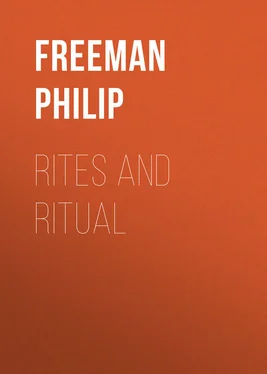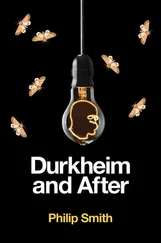Philip Freeman - Rites and Ritual
Здесь есть возможность читать онлайн «Philip Freeman - Rites and Ritual» — ознакомительный отрывок электронной книги совершенно бесплатно, а после прочтения отрывка купить полную версию. В некоторых случаях можно слушать аудио, скачать через торрент в формате fb2 и присутствует краткое содержание. Жанр: foreign_antique, foreign_prose, на английском языке. Описание произведения, (предисловие) а так же отзывы посетителей доступны на портале библиотеки ЛибКат.
- Название:Rites and Ritual
- Автор:
- Жанр:
- Год:неизвестен
- ISBN:нет данных
- Рейтинг книги:4 / 5. Голосов: 1
-
Избранное:Добавить в избранное
- Отзывы:
-
Ваша оценка:
- 80
- 1
- 2
- 3
- 4
- 5
Rites and Ritual: краткое содержание, описание и аннотация
Предлагаем к чтению аннотацию, описание, краткое содержание или предисловие (зависит от того, что написал сам автор книги «Rites and Ritual»). Если вы не нашли необходимую информацию о книге — напишите в комментариях, мы постараемся отыскать её.
Rites and Ritual — читать онлайн ознакомительный отрывок
Ниже представлен текст книги, разбитый по страницам. Система сохранения места последней прочитанной страницы, позволяет с удобством читать онлайн бесплатно книгу «Rites and Ritual», без необходимости каждый раз заново искать на чём Вы остановились. Поставьте закладку, и сможете в любой момент перейти на страницу, на которой закончили чтение.
Интервал:
Закладка:
Philip Freeman
Rites and Ritual / A Plea for Apostolic Doctrine and Worship
PREFACE
The following pages had been prepared, for the most part, for publication, before it was known that the question of Ritual would be discussed in Convocation, or a Committee of the Lower House appointed, by the direction of the Upper House, to report upon it.
But the suggestions here offered are of so general a character, that it seemed to the writer that they might still without impropriety be put forth as a contribution, of however humble a kind, to the general ventilation of the subject.
It was the writer's hope, as expressed in the original announcement of the Pamphlet, that his Diocesan, the venerable Bishop of Exeter, would have been able to prefix, in an Introduction, his opinion on the leading points, whether of Ritual or Doctrine, involved in the present controversy. And, although that hope has been in part frustrated, he has still been privileged to embody, in an Appendix, his Lordship's deliberate judgment on some of the weightier matters of Eucharistic Doctrine; and to receive an assurance of his warm interest in the subjects dwelt upon in these pages.
The writer has to apologise for having occasionally referred the reader to a larger work of his own. He begs that this may be understood to be merely a guarantee, that detailed proof is forthcoming on points which could only be cursorily treated of in the present publication.
RITES AND RITUAL, ETC
The position of affairs in the English Church, at the present moment, is such as may well call forth from her children such counsel as their affection may prompt, or their experience justify. And, whatever be the intrinsic value, if any, of the suggestions about to be offered here, the writer can at least testify that, though called forth by a particular conjuncture of circumstances, they are not the hasty or immature thoughts of the moment, but rather an outpouring of the anxious musing of years over the condition and prospects of a beloved and honoured Mother.
It will be conjectured, from what has now been said, that the writer is not among the number of those who perceive, in the present condition of the English Church, or in her rate of improvement of late years, any grounds for satisfaction, much less for complacency or congratulation. On the contrary, he very humbly conceives – and his reasons for that opinion shall be given presently – that to the spiritual eye, used to rest either on what the Church of God was intended to be , or on what once, for a few centuries, she was , there is, in the practical condition of the English Church one defect of so radical a character, and which has eaten so extensively into her entire system, that until this is, at least in a very great measure, remedied, all else is little better than a palliative, and little else than an illusion. There is surely something deeply saddening in the spectacle (if it indeed be so) of a Church busying herself with "many things" – making much show of practical activity, of self-reparation, of improvement in services and ministries, of extension abroad, – when all the while the "one thing," namely, soundness and perfectness in Apostolic faith and practice , is in any serious degree wanting to her. If, while she is manifesting a feverish anxiety about the more or less of Ritual, there is in her Rites (of which Ritual is but the outward clothing) that which demands repair and readjustment on an extensive scale; then it is surely needful to press upon her, in the first instance, the redress of such essentials, before proceeding to speak of the accessories.
And this is what the present writer, with all humility, undertakes to make good. He is indeed far from denying that, "by the good Hand of our God upon us," great things, of a certain kind, have been accomplished in our day.
"Stately thy walls, and holy are the prayers
That day and night before thine altar rise."
Our churches have grown to be, to a great extent, the perfection of earthly sanctuaries. Our Services are nobler and heartier. Our church music is more worthy of the name. Better still than this, and more to the present purpose, our communicants have increased in numbers, our Communions in frequency. Our clergy, as a rule, are devoted, beyond the example of former times, to their duty, according to their conception of it. Schools are diligently cared for, and are fairly efficient; foreign missions grow; the home circle of charities is daily widened and rendered more effectual. And this is "progress," or "improvement," undoubtedly. And, were the Church a mere Machine, or a mere System, it would be perfectly reasonable to point with satisfaction to such progress or improvement. But the Church is neither the one nor the other. She is a Divine Body. And what if, while some operations of that Body are being performed with a certain increase of vigour, her very constitution, as divinely organised by God Himself, is being suffered to fall into habitual and chronic unsoundness?
Surely, as it is the first duty of man to do right , and only his second to do good ; – as health is the highest of bodily blessings, so that activity, apart from it, is but spurious and imperfect; – so is it the Church's first duty to be sound , — primum valere , – and only her second to be, if God enables her, active and prosperous.
And the Church being, as I have said, a Divine Body – the Body of Christ – it is plain that the first condition of her soundness is full as well as vital union with Christ through the appointed medium, the Sacraments. Upon these are absolutely suspended her existence in the first instance, and her preservation and growth afterwards. What then, I would ask, can possibly be of more importance than that these sacred and wonderful ministries should be performed, in all respects , according to the Ordinance of Christ, such as he delivered it to the apostles?
And if it be asked, How are we to know what it was that Christ delivered to the apostles on this subject, seeing that Holy Scripture is confessedly brief and unsystematic in its teaching respecting it? the answer manifestly is, By looking at the universal practice of the Church in the time of the apostles, and during the earliest ages after them. We know, with sufficient accuracy, what that practice was. Their customs as to the administration of Baptism are known to us; their Liturgies or Communion Offices are in our hands. And, though diversities of practice, outside of certain limits, are found existing in those ages, within certain limits there is none.
Now, among the points thus defined for us by universal early usage, is the ordained frequency of celebration of both Sacraments. The law of Holy Baptism, viz. that it should be administered once only, was universally received. This is confessed on all hands.
And when we come to the Holy Eucharist, here, too, the degree of frequency , as a law and as a minimum , of celebration, is defined for us no less certainly. That this was, by universal consent and practice, weekly , – namely, on every Lord's Day or Sunday – cannot be gainsaid. That it was on occasion administered more frequently still; that in some churches it became, we will not define how early, even daily; that, according to some, the apostles, at the very first, used it daily, – is beside the present question. The point before us is, that there was no Church throughout the world which failed, for the first three or four hundred years, to have everywhere a weekly celebration on the Sunday , and to expect the attendance of all Christians at that ordinance. Of this, I say, there is no doubt. The custom of apostolic days is perfectly clear from Acts xx. 7, and other passages. The testimony of Pliny, at the beginning of the second century, is that the first Christians met "on a stated day" for the Eucharist; while Justin Martyr (an. 150) makes it certain that that day was Sunday. And the testimony of various subsequent writers proves that the practice continued unbroken for three centuries. The Council of Elvira, 1 1 Can. 21. It is referred to by Hosius at the Council of Sardica, A.D. 347.
A.D. 305, first inflicted the penalty of suspension from church privileges on all who failed to be present for three successive Sundays; and we know from our own Archbishop Theodore of Tarsus, A.D. 668, that in the East that rule was still adhered to, though in the West the penalty had ceased to be inflicted.
Интервал:
Закладка:
Похожие книги на «Rites and Ritual»
Представляем Вашему вниманию похожие книги на «Rites and Ritual» списком для выбора. Мы отобрали схожую по названию и смыслу литературу в надежде предоставить читателям больше вариантов отыскать новые, интересные, ещё непрочитанные произведения.
Обсуждение, отзывы о книге «Rites and Ritual» и просто собственные мнения читателей. Оставьте ваши комментарии, напишите, что Вы думаете о произведении, его смысле или главных героях. Укажите что конкретно понравилось, а что нет, и почему Вы так считаете.












